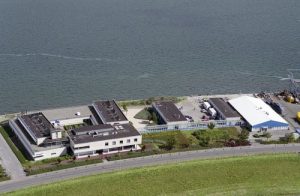Utrecht University – Earth Sciences
PO Box 80.021, 3508 TA Utrecht
Princetonlaan 8, 3584 CB Utrecht, NL
Stable Isotope Lab
nanoSIMS
Contact
Michiel Kienhuis
m.v.m.kienhuis@uu.nl
31(0) 6 37338646
Research line
Ecology, Geology, Microbiology, Paleoclimatology
Topics
Stratigraphy & paleontology : astronomical timescales and paleoclimate
Marine Geochemistry and Chemical Oceanography: marine sediments /overlying water column, eastern Mediterranean.
Organic Geochemistry: the natural environment (i.e. water, soil, sediments), rocks and fossil fuels.
Experimental Biogeochemistry: environmental relevant processes under controlled conditions.
Geochemical Modeling: improving the quantitative understanding of the cycling of bioactive elements.
Petrology group: stable isotope biomarkers for early life. Volcanism crater lakes and natural pollution.
Paleoecology
Biomarine Sciences: studying Paleoclimate
Isotopes
13C, 15N, 18O, 2H, 32S, 37Cl, Clumped oxygen isotopes (and others, like 29Si, 44Ca and heavier elements with nanoSIMS)
Instruments
DI-IRMS ISOCARB, DI-IRMS Kiel, EA/C/IRMS, TOC/IRMS, GC/C/IRMS, LA/IRMS, GC/IRMS, nanoSIMS
Thermo Finnigan MAT253 with Kiel-IV Device.
Thermo DeltaV with isolink Elemental Analyser and/or TCEA.
Thermo DeltaplusXP with GC-C-III.
Thermo Delta-V with laser-ablation/GC-C-III.
Thermo Delta-V with either a GasBench-II or a GC-C-III.
Thermo 253Plus plus with a Kiel-IV for clumped carbonate isotopes.
Elementar VisION with Agilent 8890 and GC5 combustion/pyrolysis interface.
Cameca NanoSIMS 50L for multi elemental and stable isotope ratio measurements and imaging.
A set of vacuum lines for offline preparation of samples.



